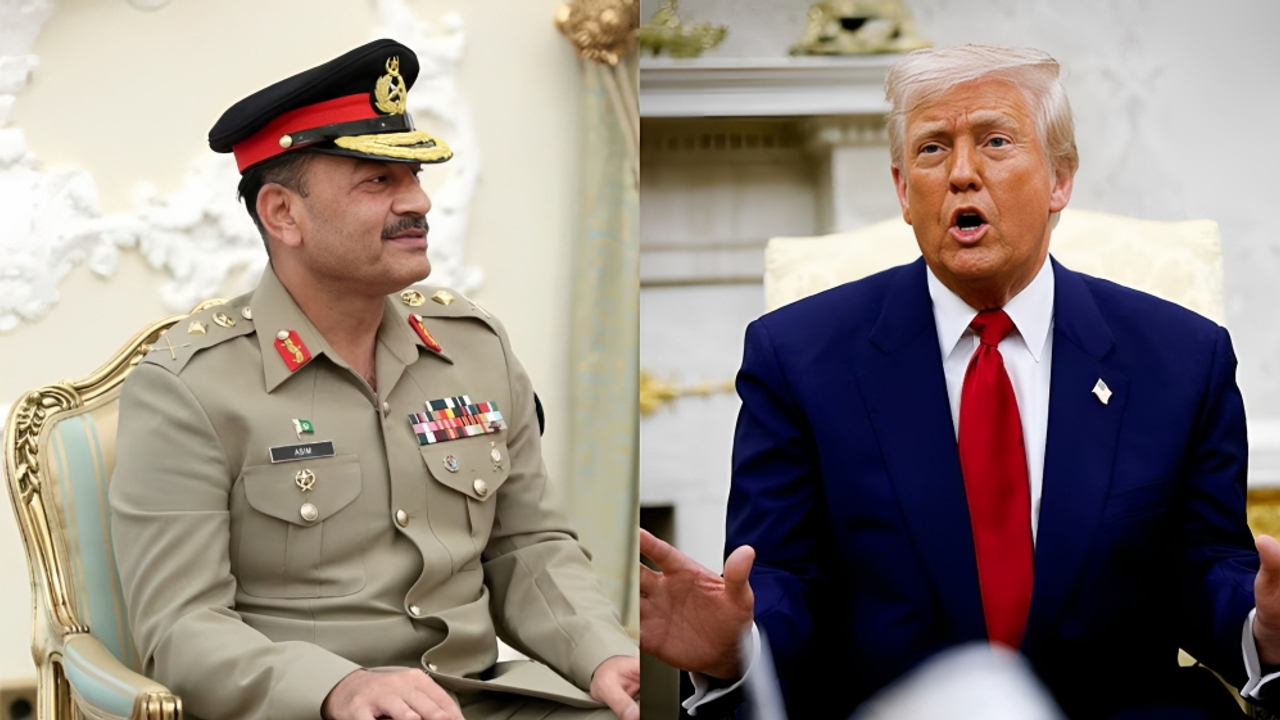US President Donald Trump hosted Pakistan Army chief Asim Munir for a rare lunch at the White House, amid regional tensions with India and escalating conflict in the Middle East. Counterterrorism and diplomacy topped the agenda.
In a significant diplomatic move, US President Donald Trump hosted Pakistan’s Chief of Army Staff, Field Marshal Asim Munir, for lunch at the White House on Wednesday. The meeting took place in the Cabinet Room at 1 pm local time, according to an official White House schedule.

Donald Trump had returned early from the G7 Leaders' Summit in Canada to address pressing global issues, including the worsening conflict between Israel and Iran. Hosting Munir amid such developments suggests Washington’s growing interest in Pakistan’s role in regional stability and counterterrorism.
First five-star general since Ayub Khan
Asim Munir was recently promoted to Pakistan’s rarely-awarded five-star rank, the first such elevation since Ayub Khan in 1959. His visit to Washington follows increasing global interest in Pakistan’s internal politics, security role, and international alignments.
Speaking to the Pakistani-American community at the Four Seasons Hotel in Washington on Monday night, Munir struck a strong nationalistic tone, asserting Pakistan’s sovereignty and denying Indian allegations of involvement in the recent Pahalgam terror attack in Jammu and Kashmir.
India under sharp focus
India featured prominently in Munir’s remarks during his US visit, reported news agencies. He reportedly urged India to “engage with Pakistan as a civilised nation” rather than trying to enforce “regional hegemony.” He accused New Delhi of violating international norms and attempting to create a “dangerous new normal” along the India-Pakistan border.
Tensions have risen sharply between the two nuclear-armed neighbours since the May 7 Pahalgam terror attack. In response, India carried out precision strikes targeting terror camps in Pakistan and Pakistan-occupied Kashmir.
Both sides engaged in four days of cross-border hostilities, which ended on May 10 after a mutual understanding was reached during talks between the two nations’ military leaders.
Strengthening counterterrorism partnership
Perhaps the most strategic takeaway from Munir’s US visit has been the strengthening of counterterrorism cooperation between Pakistan and the United States, particularly in the fight against ISIS-K (Islamic State Khorasan).
General Michael Kurilla, head of US Central Command, praised Pakistan as a “phenomenal partner” in counter-ISIS operations. Kurilla told the House Armed Services Committee that Pakistani forces, backed by US intelligence, have killed dozens of ISIS-K fighters and captured key militants.
One major arrest was Mohammad Sharifullah, one of the alleged masterminds of the Abbey Gate bombing at Kabul airport in 2021, which killed 13 US troops. Munir reportedly contacted Gen Kurilla directly after Sharifullah’s capture and quickly arranged his extradition to the US.
“The first person Munir called was me,” Kurilla said. “He told me, ‘I’ve caught him, ready to extradite. Please inform the Secretary of Defence and the President.’”
Kurilla also testified before the Senate Armed Services Committee that Pakistan has launched dozens of operations against ISIS-K along the Afghanistan border, positioning itself as a crucial counterterrorism ally in Central and South Asia.
Backing Iran in fight against Israel
On the broader geopolitical front, Munir reaffirmed Pakistan’s support for Iran in its war against Israel while also welcoming US efforts to de-escalate the ongoing conflict.
“We want this war to end immediately,” Munir said, adding that Pakistan stands for peace and regional stability.
Domestic backlash in Washington
While Munir met with officials and spoke to a packed hall of supporters, he was also greeted by protesters aligned with Imran Khan’s Pakistan Tehreek-e-Insaf (PTI) party. The demonstrators, gathered outside the hotel, called for democratic reforms and the release of jailed PTI leaders.
Why this matters for India
India is watching these developments closely. The US outreach to Pakistan’s army chief, even during heightened India-Pakistan tensions, raises questions about Washington’s balancing act in South Asia. Many on social media expressed outrage over the invite to Pak chief for the lunch at White House.
While the US has deepened ties with India in areas like defence, trade, and technology, it continues to value Pakistan, particularly its involvement in Afghanistan and the surrounding region.
How this evolving dynamic affects India-US relations, and India’s future engagement with Pakistan, remains to be seen.
